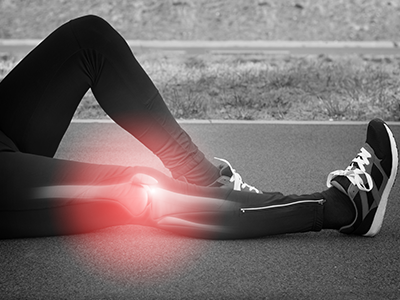Exercise Physiology Treatment For Knee Injuries

Our team of exercise physiologists are experienced in treating a wide variety of knee pain, from athletes recovering from significant knee injuries to older clients managing osteoarthritis. We use tailored exercise programs to help clients reduce pain, rebuild strength and mobility, and return to their full lifestyle and sporting activities. We believe that every client is different and has unique goals, so your program is fully personalised to your individual situation, goals, injury history and exercise preferences.
Knee injuries that our exercise physiologists commonly treat include:
- Patellofemoral pain syndrome (kneecap pain, including runners knee)
- Osteoarthritis
- Return to sport following ACL reconstruction or knee arthroscopy, and other post-operative knee strength and rehab programs
- Degenerative and traumatic meniscal (cartilage) tears
- Patella tendinopathy
Steps To Exercise Physiology Management Of Knee Injuries
Initial Assessment
Your exercise physiology program begins with a comprehensive assessment of your knee and surrounding body parts. We will take a full history of your injury, review your current and previous exercise ability, and work with you to set goals for your knee rehab. The range of motion and strength of your knee will be assessed, as well as the movement of your ankle, hip, pelvis and spine. You will also be guided through a movement screen to assess provocative movements and review your exercise technique, for example we will check your gym squat or lunge technique if this is relevant to your knee pain.
The goal of your initial assessment to is to identify all possible aggravating factors to your knee injury. Knee pain is often multi-factorial and can be a combination of exercise technique, total exercise volume and load, and loss of strength or range of motion at the knee, hip or ankle. Even “traumatic” knee injuries often have underlying predisposing factors, for example up to 70% of ACL injuries are non-contact, showing that a lack of knee control and strength can lead to seemingly traumatic injuries. By combining the results of your initial assessment with your rehab goals our exercises physiologists will collaborate with you to create your personal exercise physiology treatment program.
Your Exercise Physiology Treatment Program
Your exercise physiology treatment plan is developed based on your knee injury, the results of your physical assessment, your goals, and your confidence with exercise. Although each client’s knee injury is unique, your treatment program usually progresses through four main stages.
- Regain your full range of movement and identify exercises that you can begin straight away without aggravating your pain
- Re-activate local knee muscles and start specific strength exercises
- Correction of whole-body biomechanical factors that are contributing to your pain, for example hip and ankle biomechanics
- Returning to activity and sport. This stage is heavily based on your personal goals and you will progress through higher-level functional strength exercises that replicate everyday activities or movements required in your sport
Your treatment will usually begin with mobility exercises to restore motion at your knee, hip and ankle. As your range of motion and pain improves you will progress to more challenging mobility and strength exercises that integrate multiple body parts. Next you will integrate more functional whole-body exercises to correct underlying biomechanical issues and improve any exercise technique faults that may be contributing to your pain. Finally, you will be taken through sport- or activity-specific drills designed to replicate the demands of your sport e.g. running technique and change of direction drills for soccer and rugby players. The goal of your exercise physiology treatment is to help you to achieve all of your goals plus build your body’s strength and resilience to higher levels than before your injury, as this reduces your risk of future problems.


